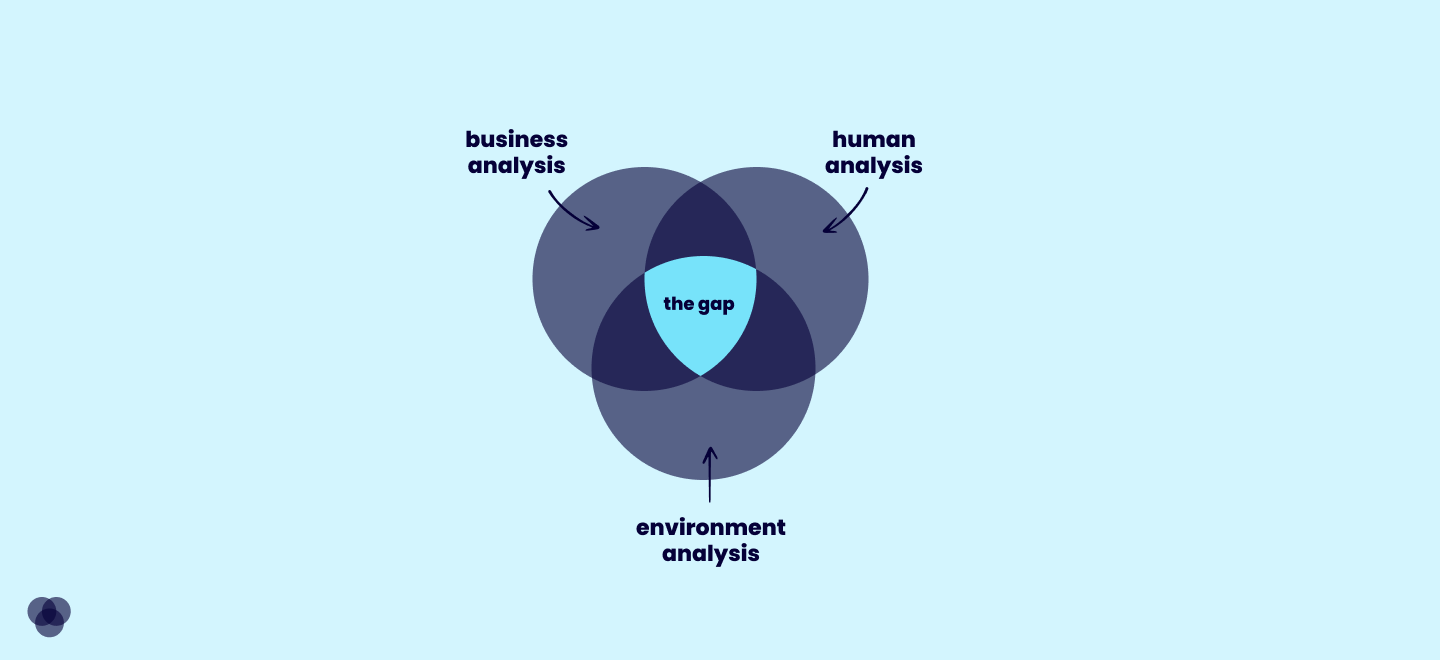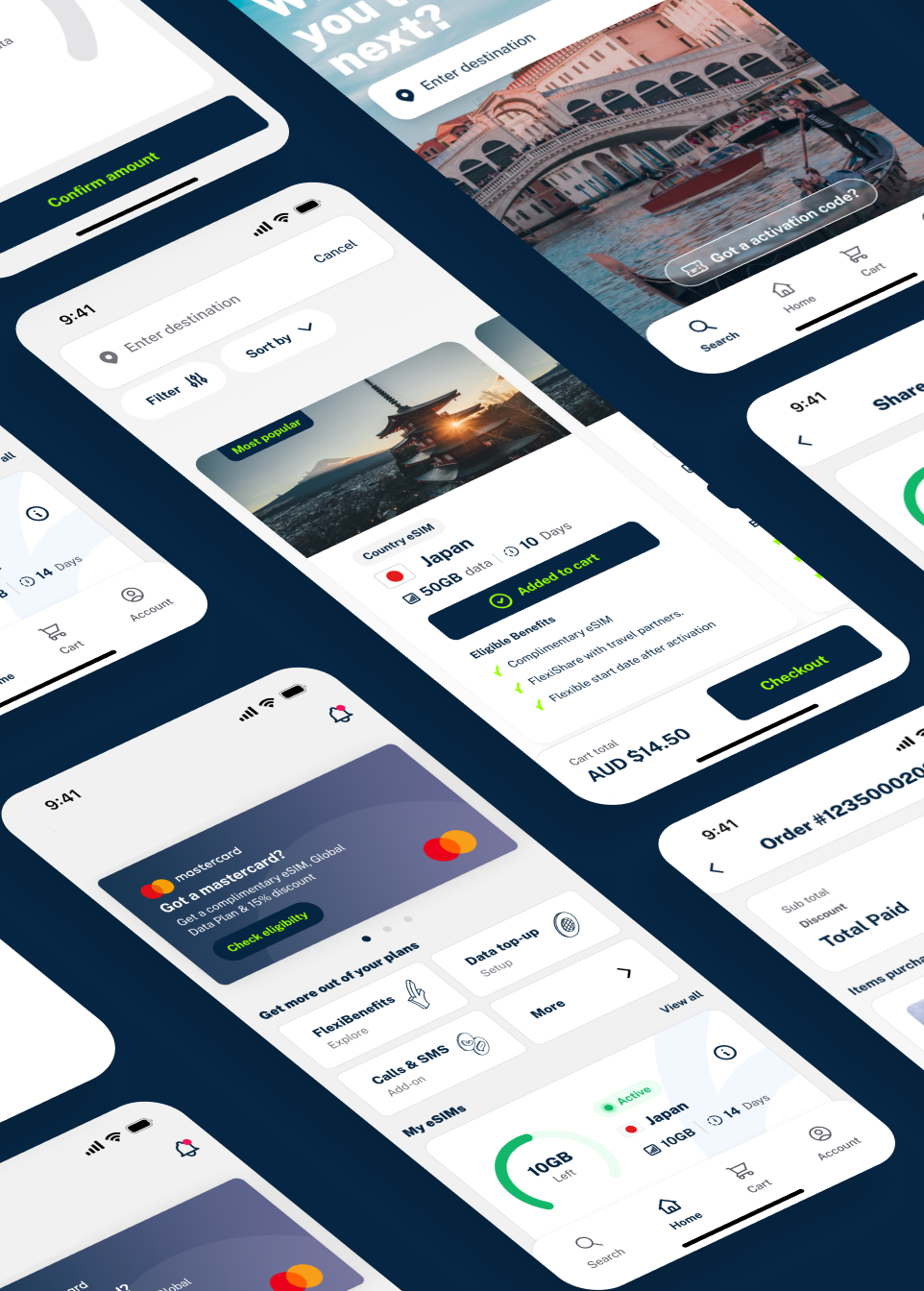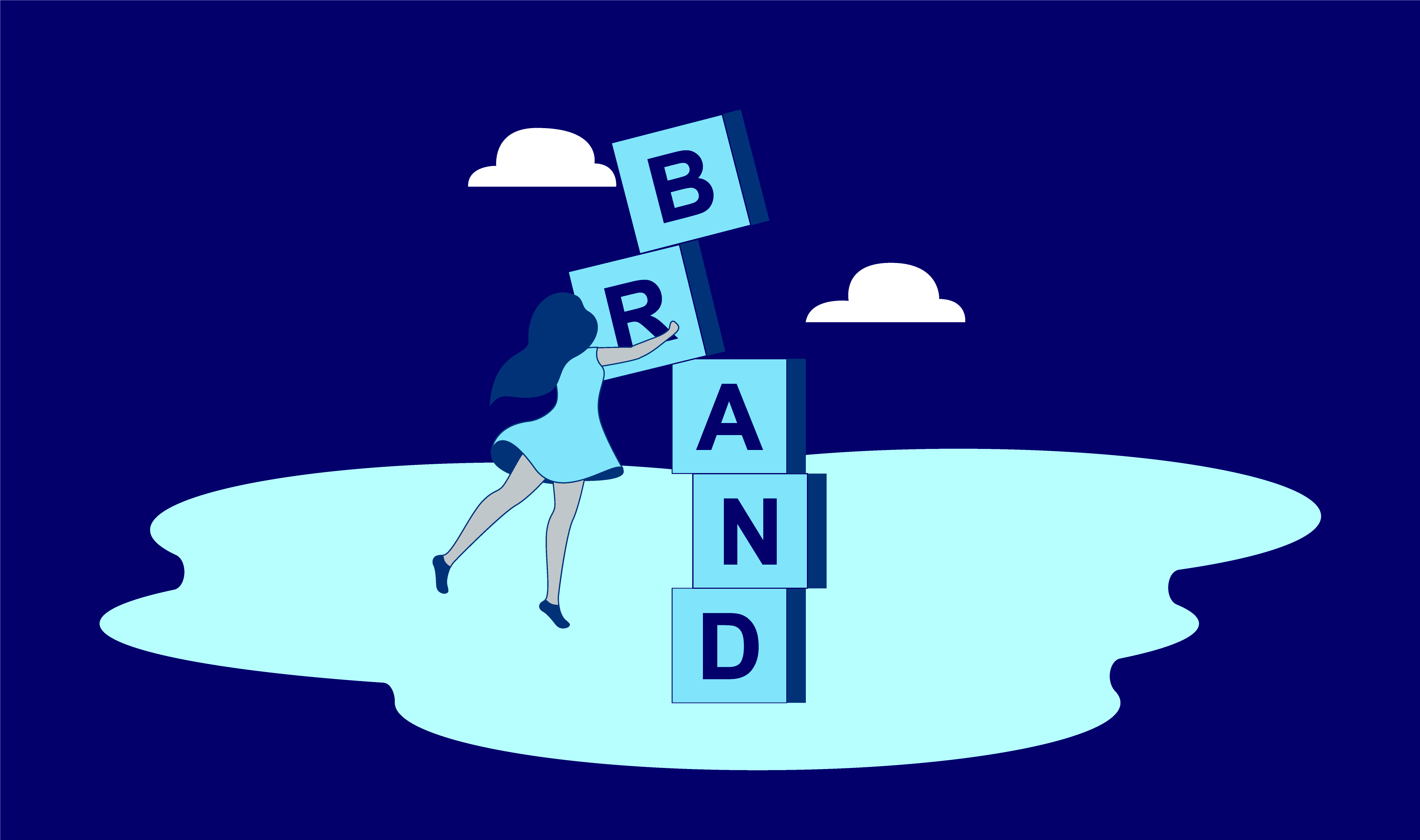Studio LDN is ‘Minding the Gap’ with it's Research Methodologies

The needs of consumers are changing faster than most businesses are able to maintain. As Studio LDN undertakes business-transforming research, we have observed this time and time again – we have identified that the key to success is identifying the gap
The common gap is a misunderstanding between stakeholders, their customers’ interaction with their products or services, and what is happening within the business industry.
If you know what your business needs, what your customers want, and what the market is doing, you can provide more value, shake things up and even completely switch up your services and offerings to ensure growth in a crowded market.
How does ‘Mind The Gap’ research work? If we break it down, it examines your business (your world), humans (real world) and the broader environment (big wide world). We identify the insights at the intersection of each element (the ‘gap’) and use this to build out a complete experience design across key elements from product development to brand design, and beyond.
Our ‘Mind the Gap’ Research consists of three types of Analysis;
Business Analysis (Stakeholder Workshops)
This analysis helps you to understand, define and prioritise your business requirements and goals and gives you an opportunity to gather existing knowledge from your team. We also begin to build an understanding of which humans are your most relevant customers / users and gain clarity and agreement on their needs, motivations, and behaviours. This is where we begin to build empathy for your customers. How you view your business and your customer personas can be completely different from the reality.
The first step is to challenge those potential assumptions.
By ascertaining an impartial picture we get an accurate view of how your team perceives the human needs that will drive customer behaviour and any current challenges they face, and our research methodology will validate (or otherwise!) this. In order to optimise the human experience, we first need to know how it is viewed internally.
Inviting key decision-makers as well as the frontline of your company to workshops allows for an open exchange of ideas during this discovery phase. Everyone’s thoughts, beliefs and assumptions are heard and inputted. This helps ensure a research plan that is universally agreed upon and ensures a robust hypothesis to challenge.
Human Analysis (Customer Research)
Speaking to the real humans that currently (or not yet) interact with your business is essential. Through interviewing mixed demographics and customer / non-customer groups we identify pain points, glean a better comprehension of the actual journey and ascertain what the ideal experience is for them. It’s important to understand the human point of view and perception of your brand, especially if your business is in a competitive space or carving out a new category. We quickly build a picture of who they are, what other cultural trends are affecting them, where your business can answer a need, and where the gaps are within the current experience. You are also likely to get ‘straight from the horse mouth’ passionate feedback about what they simply love or hate, want or need!
If you understand your customers better, you can begin making more informed decisions around problem areas that you need to resolve. Research will give you the perspective and empathy needed to create a more targeted digital transformation or marketing effort. This can all support future development, brand messaging and even content strategies.
72% of customers will tell 6 other people about a good user experience they had. This is vital for brand reputation and winning new customers (Source: Spiralytics)
Environment Analysis (Market Research)
By conducting research into the market outside of your business, surveying your competitors and gathering insights from both macro and micro trends you can gain key information vital to understanding the environment in which you operate. Draw on behavioural insights and current trends to understand how global themes are impacting as well as what’s ‘going on’ at the human level when it comes to needs and wants. Put simply, get out of your own bubble and get some perspective on what is really going on. By considering the ‘bigger picture’ you can get ahead of the game by understanding potential future customers, and initiate validified change management business streams to open up these opportunities whilst optimising your current customer’s ‘stickiness’.
How can this research work for you?
A key goal of ‘Mind The Gap’ research is to provide the tools to optimise the customer experience and understand how to improve retention strategies.
You will be able to build a roadmap with action points based on an analysis of current customer thinking and touchpoints. In addition to setting you apart from your competition, you will be able to communicate, build, and create future-ready experiences with more authenticity and assurance for your customers now and into the future. Giving you a holistic data set can provide the business-case approval for your digital, marketing or product transformation.
LDN’s Mind The Gap methodology ensures a holistic view of the entire human / customer journey, as well as what to provide along the way, something acknowledged as critical for business success; 84% of customers say the overall experience a company provides is just as important as its products and services (Source: Salesforce)
We run all of our workshops in Figma (Figjam) so the whole team has access to our digital post-it notes. This is a great way to invite stakeholders that are remote, document the process and have a source of truth for the wider team to access. Ultimately, it becomes the source of truth for all team members. (not sponsored by Figma, we just think it’s a really great tool to shout about)
contact
We'd love to chat growth with you today.
Sydney, Australia
2 Ada Street, Brookvale, Sydney, NSW 2099
United Kingdom
Unit 2 Dunheved Rd, Pennygillam Way, Pennygillam Industrial Estate, Launceston, PL15 7ED


